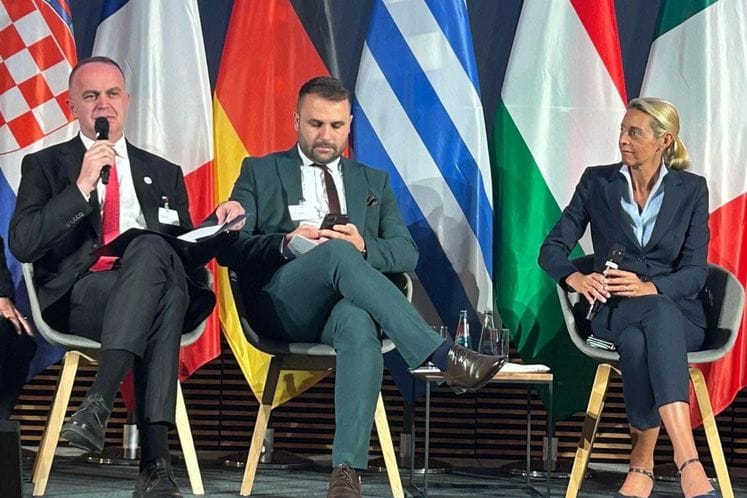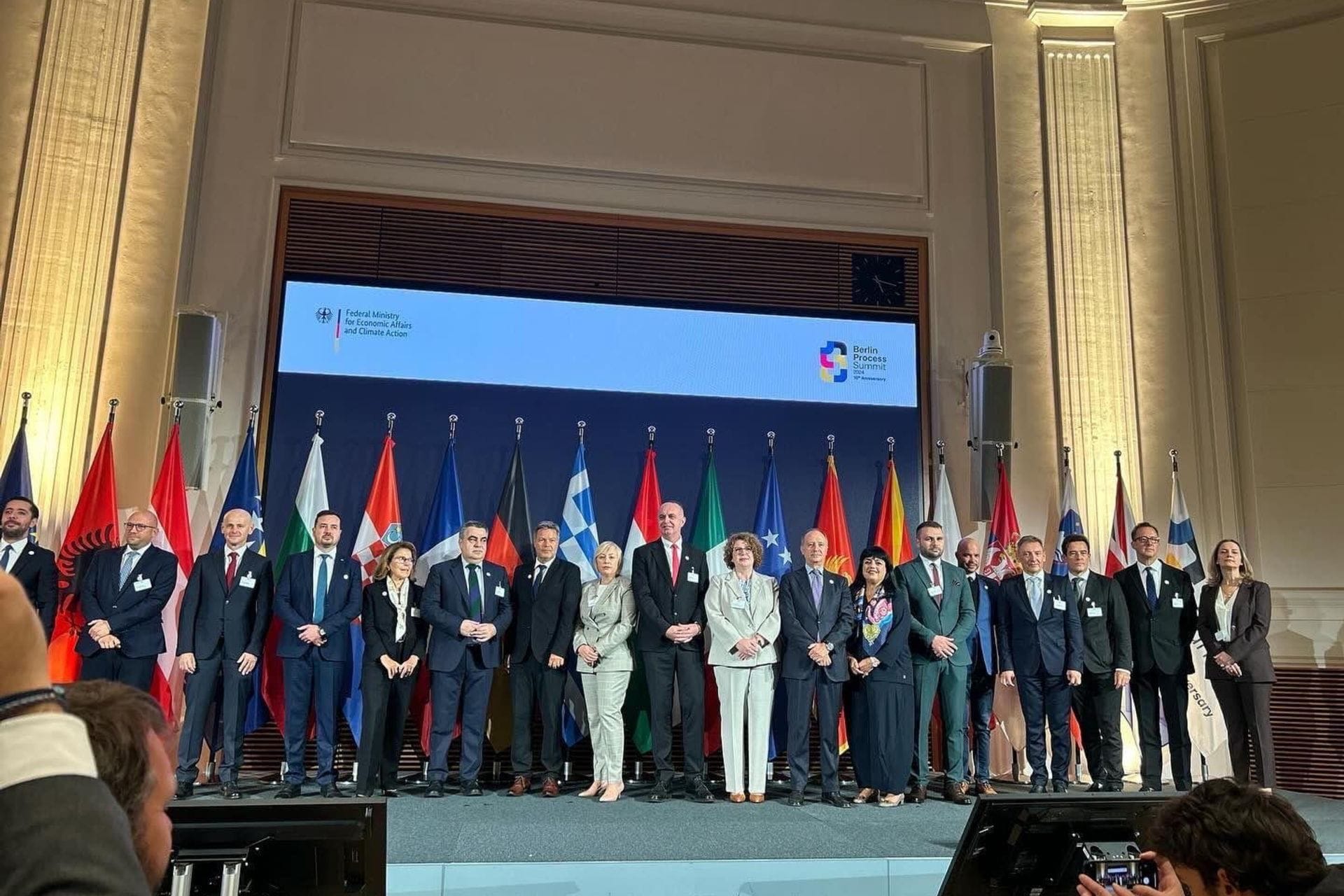- Government of Montenegro
DPM Gjeloshaj participates in Western Balkans Econ...
DPM Gjeloshaj participates in Western Balkans Economy Ministers Conference in Berlin

Deputy Prime Minister for Economic Policy and Minister of Economic Development Nik Gjeloshaj, along with Director-General of the Directorate for International Cooperation, European Integration and EU Funds Implementation Ivona Savićević, attended the Western Balkans Economy Ministers Conference on 24 September 2024. The event was organised by Germany’s Federal Ministry for Economic Cooperation and Climate Action.
This year’s conference held special significance as it marked the 10th anniversary of the Berlin Process. Launched in 2014, the process has been instrumental in supporting the Western Balkan countries on their path toward the European Union by promoting stability, economic development, and regional cooperation. The conference, a key component of the Berlin Process, provided an opportunity to assess progress and define the next steps toward EU integration.
The main topics discussed focused on strengthening the regional market, attracting foreign investments, improving the business environment, addressing energy policy challenges, and implementing the Carbon Border Adjustment Mechanism (CBAM).
In his address, Deputy Prime Minister Gjeloshaj emphasised that the long-term focus of Montenegro's government is on strengthening and diversifying the economy, sustainable development, green transition, and improving transport infrastructure. He highlighted the development of the ICT sector, energy initiatives, and better infrastructure connections between Montenegro, the region, and the EU as crucial goals.

Gjeloshaj’s participation provided a valuable opportunity to exchange experiences with senior officials from the region and EU member states, reinforcing Montenegro’s position as an important player in regional and European initiatives. He reiterated Montenegro’s full commitment to enhancing regional cooperation through the implementation of the Action Plan for the Common Regional Market and the CEFTA Agreement, crucial instruments for accelerating the economic integration of the Western Balkans with the EU market.
The Deputy Prime Minister stressed the need for the Western Balkans to further strengthen regional economic integration and deepen economic cooperation with EU members. He underscored that building a common regional market based on EU rules has the potential to transform the economies of the Western Balkans.
The conference highlighted that increased competitiveness through integration into value chains and a larger regional market would provide a boost to companies from the Western Balkans, allowing them to better integrate into European value chains and enhance their competitiveness in the EU market.
One of the most successful initiatives of the Berlin Process, the so-called "Green Corridors," was recognised for facilitating transport and trade within the region and between the region and the EU. These corridors have been particularly beneficial in terms of customs cooperation, data exchange, risk assessment, coordination of working hours, and the modernization of infrastructure, equipment, and IT systems at border crossings, aimed at reducing formalities and customs clearance times.
In his closing remarks, Deputy Prime Minister and Minister of Economic Development Nik Gjeloshaj highlighted that receiving IBAR is a direct signal of Montenegro’s significant progress in key areas. He reaffirmed that Montenegro continues to actively align with EU laws and standards, preparing for full membership by 2028. Gjeloshaj also emphasised the importance of the provisional closure of key negotiation chapters expected by the end of 2024, particularly Chapter 7 – Intellectual Property Law, Chapter 10 – Information Society and Media, Chapter 20 – Enterprise and Industrial Policy, and Chapter 31 – Foreign, Security, and Defence Policy.
